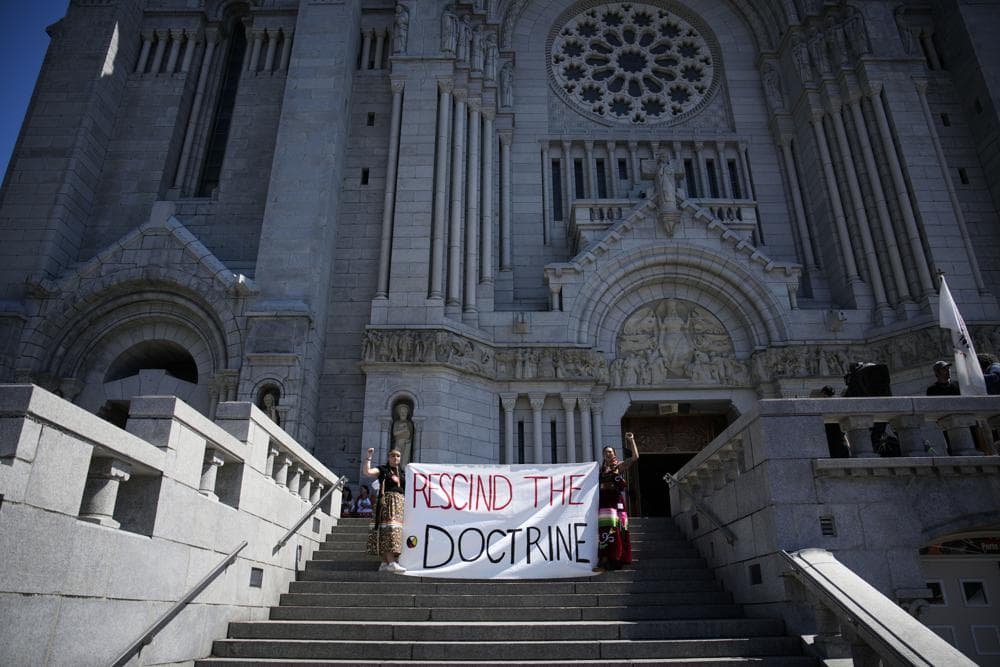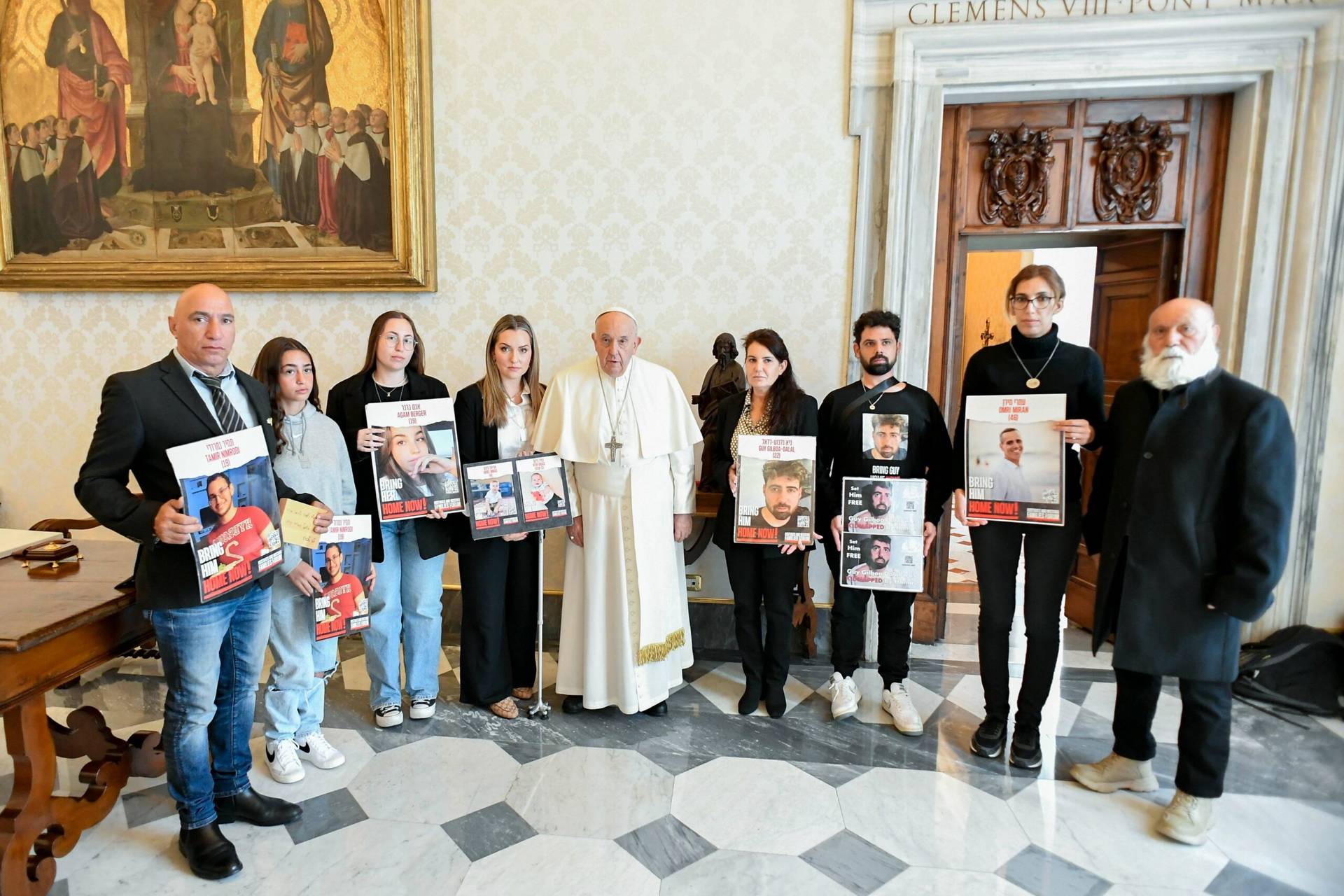ROME – After repeated calls from Canadian indigenous communities for the Catholic Church to rescind the so-called “Doctrine of Discovery,” the Vatican has disowned that position, claiming it never formed part of the Catholic faith, but stopped short of rescinding it.
In a joint statement released Thursday, the Vatican Dicastery for Culture and Education and the Dicastery for Promoting Integral Human Development said the Catholic Church upholds the dignity of every human being and “repudiates those concepts that fail to recognize the inherent human rights of indigenous peoples, including what has become known as the legal and political ‘doctrine of discovery.’”
However, they disowned the concept entirely, arguing that the Doctrine of Discovery “is not part of the teaching of the Catholic Church” and that past papal documents associated with it, “written in a specific historical period and linked to political questions, have never been considered expressions of the Catholic faith.”
The Catholic Church’s “Doctrine of Discovery” is not an official church doctrine, but rather consists of a series of edicts published in the 15th century endorsing the colonization of West Africa and the Americas.
It was a major point of discussion during the pope’s trip to Canada last summer and during a visit of Indigenous delegations to the Vatican several months prior, with survivors of Canada’s residential school system and other Indigenous activists asking that the Catholic Church’s Doctrine of Discovery be rescinded.
So intense was the debate around the Doctrine of Discovery that during Pope Francis’s July 28, 2022, Mass in Quebec City, a group of Indigenous people displayed a banner saying, “Rescind the Doctrine of Discovery,” before quickly taking it down after Francis arrived on the altar.
At the time, Vatican officials said they were looking into the request, but gave no specifics.
In Thursday’s statement, the Vatican acknowledged the Church’s past failings and admitted that over the course of history, “many Christians have committed evil acts against Indigenous peoples for which recent Popes have asked forgiveness on numerous occasions.”
The Vatican said dialogue with Indigenous communities is ongoing and that through this dialogue, the Catholic Church has been able to better understand past and present sufferings due to the expropriation of their lands, as well as forced assimilation through the former national residential school system – a project of the Canadian government, which placed the Catholic Church and other Christian denominations in charge of these schools, where various abuses against Indigenous children occurred.
“Their sufferings constitute a powerful summons to abandon the colonizing mentality and to walk with them side by side, in mutual respect and dialogue, recognizing the rights and cultural values of all individuals and peoples,” the Vatican said, stressing their commitment to efforts aimed at healing and reconciliation.
They said the legal concept of “discovery” has been debated among colonial powers since the 16th century, and that it found “particular expression” in the jurisprudence of the 19th century, when courts in several countries ruled that the discovery of Indigenous lands by settlers “granted an exclusive right to extinguish, either by purchase or conquest, the title to or possession of those lands by Indigenous peoples.”
Over time, some scholars, the Vatican said, have argued that the basis for the Doctrine of Discovery is found in certain papal documents, including the papal bulls Dum Diversas of 1452, Romanus Pontifex of 1455, and Inter Caetera 1493.
However, the Vatican insisted that the so-called Doctrine of Discovery is not part of Catholic teaching, and it argued that historical research “clearly demonstrates that the papal documents in question, written in a specific historical period and linked to political questions, have never been considered expressions of the Catholic faith.”
“At the same time, the Church acknowledges that these papal bulls did not adequately reflect the equal dignity and rights of indigenous peoples,” the Vatican said, saying the contents of these papal bulls were “manipulated for political purposes by competing colonial powers in order to justify immoral acts against Indigenous peoples,” at times acting “without opposition from ecclesiastical authorities.”
For this reason, “it is only just to recognize these errors, acknowledge the terrible effects of the assimilation policies and the pain experienced by Indigenous peoples, and ask for pardon,” the Vatican said.
They pointed to several statements by the Catholic Church and by popes over the centuries upholding the rights of Indigenous Peoples, pointing to the 1537 bull Sublimis Deus, in which Pope Paul III said, “Indians and all other people who may later be discovered by Christians, are by no means to be deprived of their liberty or the possession of their property,” and said they should not be enslaved.
The Vatican closed their statement calling for a greater implementation of the United Nations Declaration on the Rights of Indigenous Peoples, saying, “The implementation of those principles would improve the living conditions and help protect the rights of indigenous peoples as well as facilitate their development in a way that respects their identity, language and culture.”
In a brief comment Thursday’s statement, Cardinal José Tolentino de Mendonça, Prefect of the Dicastery for Culture and Education, said that by publishing the statement, the Vatican “is looking carefully at the Church’s history and its regrettable association with the ‘Doctrine of Discovery.’”
The Doctrine of Discovery, he said, was used in various parts of the world “as a justification for the expropriation of their history and the undervaluation and elimination of their cultures.”
He referenced the papal bulls often associated with the Doctrine of Discovery, saying they “did not adequately reflect the equal dignity and rights of indigenous peoples,” and he reiterated the insistence that these bulls were manipulated by colonial powers to justify their mistreatment of Indigenous Peoples.
“The ‘doctrine of discovery’ was not part of the teaching of the Catholic Church,” he said, but said “this tragic history reminds us of the need to be ever more vigilant in our defense of the dignity of all people and the need to grow in knowledge and appreciation of their cultures.”
Mendonça called Thursday’s statement part of the Catholic Church’s “architecture of reconciliation and also the product of the art of reconciliation,” which he said is done through listening and a growth in mutual understanding.
“It is in listening to Indigenous peoples that the Church is learning to understand their sufferings, past and present, and our own failings. It is in cultural dialogue that we are committed to accompanying them in the search for reconciliation and healing. We have to live out the art of encounter,” he said.
Follow Elise Ann Allen on Twitter: @eliseannallen

















